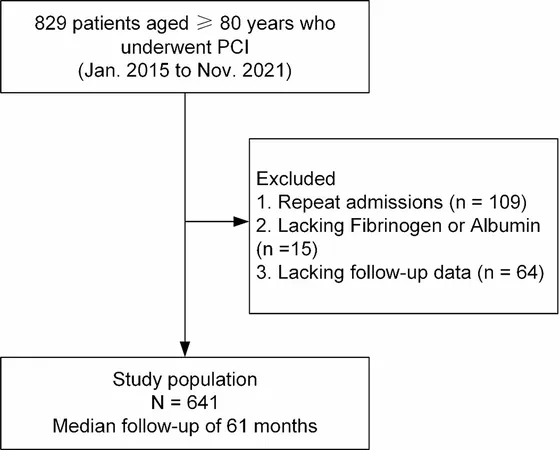
Is the U.S. Surgeon General's Call for Alcohol Cancer Warnings Overblown? Experts Weigh In!
2025-01-12
Author: Sophie
Introduction
As "Dry January" gains momentum and people across America contemplate cutting back on booze, a recent advisory from U.S. Surgeon General Dr. Vivek Murthy has sent shockwaves through the drinking community. He is calling for alcohol products to carry cancer warning labels, classifying them as potential carcinogens. However, experts like Dan Malleck, a Professor of Health Sciences at Brock University, urge a more measured discussion before everyone rushes to dispose of their fine wines.
Expert Opinions
Malleck has voiced concerns over the prevailing "anti-alcohol perspective," noting that society often readily embraces studies linking alcohol to negative health outcomes while dismissing research that suggests potential benefits of moderate consumption. "This is a problem," he asserts, emphasizing that the conversation about alcohol must be more balanced.
Surgeon General's Advisory
Dr. Murthy's advisory, issued on January 3, highlights research linking alcohol use to an increased risk of cancer. Such warnings are reserved for significant public health threats and could potentially alter national health behaviors in a manner similar to the 1964 report on smoking, which transformed how cigarettes are perceived and regulated in the U.S.
Concerns Over Messaging
Two years earlier, the Canadian Centre on Substance Use and Addiction (CCSA) reached similar conclusions about the need for caution regarding alcohol use. Reflecting on both the CCSA and the current advisory, Malleck criticizes the lack of equilibrium in the messaging. "It’s almost as if there’s a consensus that alcohol is bad; we just need the right data to support that view," he notes, accusing the current discourse of cherry-picking evidence to bolster an anti-alcohol agenda.
Moderate Drinking and Cancer Risk
Importantly, Malleck points out that while moderate alcohol consumption may slightly elevate the risk of specific cancers, these cancers are not necessarily the deadliest forms. For instance, breast cancer, which can be influenced by various factors beyond alcohol, complicates the narrative around alcohol's health effects.
Cardiovascular Health and Alcohol
Most concerning for Malleck is the evidence suggesting that moderate drinking may actually protect against cardiovascular disease, the leading cause of premature deaths in North America. A December report by the National Academies of Sciences, Engineering, and Medicine—curiously overlooked in the surgeon general's advisory—indicates that moderate drinkers may face lower all-cause mortality rates.
Conclusion
"Moderate drinking can potentially yield better health outcomes than complete abstinence," Malleck emphasizes, cautioning against using cancer labels as fear-mongering tools that mislead the public. "Discussions about cancer evoke immediate concern, while cardiovascular disease lacks the same urgency, yet it affects more lives."
As the debate rages on, the question remains: are we truly enhancing public health by imposing strict alcohol warnings, or are we simply tapping into societal fears without addressing the broader context of health risks associated with alcohol consumption? Only time will tell, but those invested in their wine collections might want to hold off on any hasty decisions just yet.









 Brasil (PT)
Brasil (PT)
 Canada (EN)
Canada (EN)
 Chile (ES)
Chile (ES)
 Česko (CS)
Česko (CS)
 대한민국 (KO)
대한민국 (KO)
 España (ES)
España (ES)
 France (FR)
France (FR)
 Hong Kong (EN)
Hong Kong (EN)
 Italia (IT)
Italia (IT)
 日本 (JA)
日本 (JA)
 Magyarország (HU)
Magyarország (HU)
 Norge (NO)
Norge (NO)
 Polska (PL)
Polska (PL)
 Schweiz (DE)
Schweiz (DE)
 Singapore (EN)
Singapore (EN)
 Sverige (SV)
Sverige (SV)
 Suomi (FI)
Suomi (FI)
 Türkiye (TR)
Türkiye (TR)
 الإمارات العربية المتحدة (AR)
الإمارات العربية المتحدة (AR)